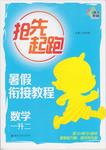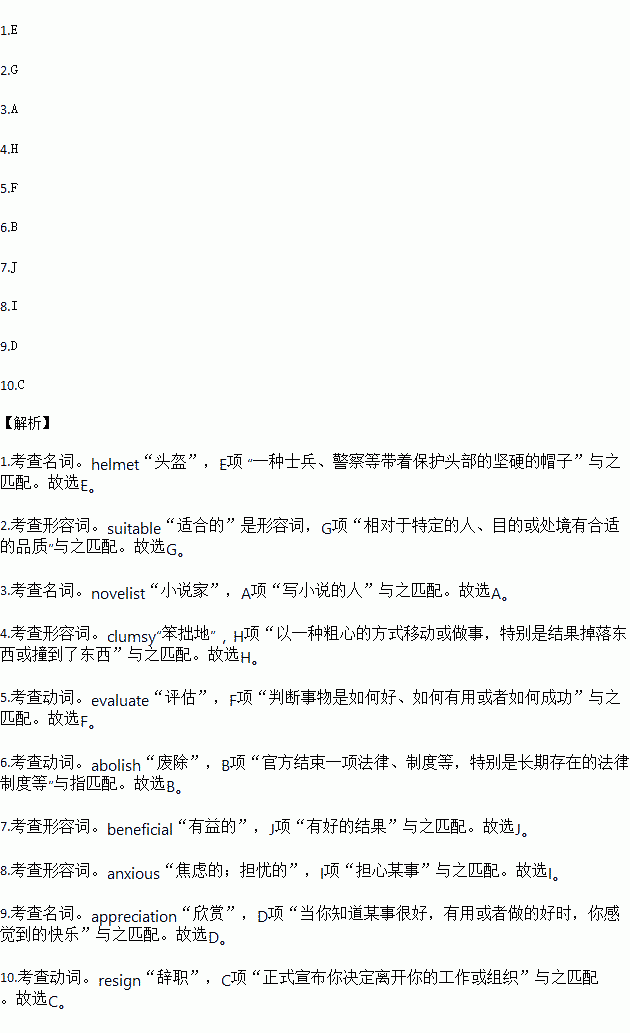题目内容
A. someone who writes novels
B. to officially end a law, system, etc especially one that has existed for a long time
C. to officially announce that you have decided to leave your job or an organization
D. pleasure you feel when you realize something is good, useful or well done
E. a strong hard hat that soldiers, the police etc wear to protect their heads
F. to judge how good, useful or successful something is
G. having the right qualities for a particular person, purpose or situation
H. moving or doing things in a careless way, especially so that you drop things, knock into things etc.
I. worried about something
J. having a good effect
1.helmet
2.suitable
3.novelist
4.clumsy
5.evaluate
6.abolish
7.beneficial
8.anxious
9.appreciation
10.resign
练习册系列答案
 数学奥赛暑假天天练南京大学出版社系列答案
数学奥赛暑假天天练南京大学出版社系列答案 南大教辅抢先起跑暑假衔接教程南京大学出版社系列答案
南大教辅抢先起跑暑假衔接教程南京大学出版社系列答案
相关题目


